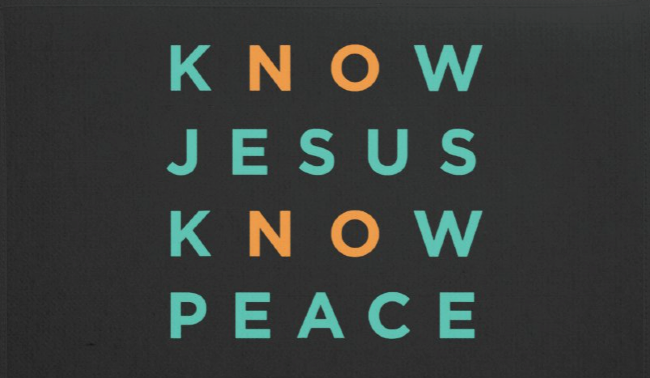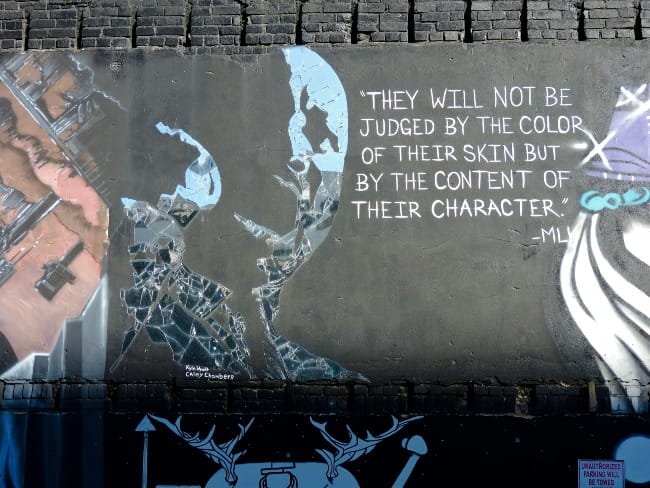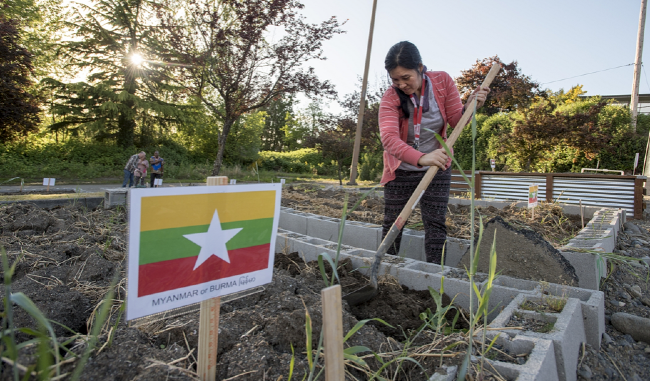A recent Gallup poll confirmed the continued erosion of Christianity’s privileged place in American society: the drastic decline in church affiliation and participation that began at the turn of the millennium has not slowed down. The Church is no longer a center of social and civic life, and local congregations cannot simply open their doors and expect people to show up. This moment of ecclesial (church) crisis is an opportunity to reassess, among other things, the Church’s understanding and practice of mission. And this work is well underway.
The word “missional” has become popular in Christian thought and imagination, showing up in book titles, sermons, conferences, and even entire movements. Growing numbers of theologians and pastors are encouraging people of faith to change their understanding of mission from the specialized work of missionaries in distant lands to the work of local churches right where they are; every believer is a missionary, every place a mission field.
I think this rise of “missional consciousness” is a helpful development, as long as we are clear about what we mean by mission. Earlier in this series, in Shift #2, we noted that followers of Jesus, and the communities to which they belong, tend to focus on parts of the biblical story, to the detriment of understanding the whole. The same is true of mission.
As we consider what it might mean to be part of God’s mission in an age of ecological and ecclesial crisis, it will help to see where some current missional models fall short.

Save the Individual, Damn the Rest
Dwight Moody, the famous 20th century evangelist, is representative of Christians who emphasize the personal dimension of mission, what Protestants often call evangelism, or “saving souls.” Moody once summarized his calling this way:
I look upon this world as a wrecked vessel. God has given me a lifeboat and said, 'Moody, save all you can.’
This understanding of mission sees our primary task - in some churches it is the only task - as inviting people into a personal relationship with God. This invitation tends to focus on helping people receive forgiveness, follow Jesus, and go to heaven when they die. This is an oversimplification, but not by much.
There is much about this aspect of mission to admire and embrace. Millions have come to know the grace and love of God because of the evangelistic impulse of Christians through the ages. One of my childhood friends has become a Christian as an adult. The transformation in his life is remarkable; hearing him speak of the forgiveness he has received, the peace he feels, and the wonder at how God is working in his life has been energizing to my own faith. He is a living example of 1 Corinthians 5:17: “If anyone is in Christ, the new creation has come.”
But this approach often ends up privatizing faith and spirituality in ways that reduce religion to personal faith and empowerment. Churches that emphasize this form of mission often look at non-Christian individuals, communities, and cultures as completely depraved, and see the non-human world as valueless raw material created for human use and consumption. The world is seen like Moody's vision, as a “wrecked vessel” from which to rescue "the lost."
My friend's church, for example, has no missional vision beyond bringing individuals to faith and giving them tools to grow their personal relationship with God and to invite more people into the faith. There is little awareness that God is concerned with alleviating social suffering or reconciling broken communities. There is no sense that the world God made is fundamentally good and part of God’s reconciling work. My friend’s faith is, at the moment, limited to practices that help him feel close to God and to strategies that encourage his friends and family come to believe as he has. There is more to mission than this.

End Injustice, Save Society
Despite those churches narrowly focused on personal evangelism, most followers of Jesus have understood that works of compassion and mercy are essential aspects of biblical mission. Throughout the last two millennia, Christians have cared for the sick, clothed the naked, visited those in prison, and fed the hungry. And there have been many people along the way who have called us to see that this social dimension of mission must include the pursuit of justice, which addresses the fundamental conditions and systems that create and perpetuate suffering and inequality. In the United States, we have figures such as Martin Luther King Jr., who called the nation (and Christians) to pursue racial and economic justice, and often rooted his vision in the language of salvation and new creation.
The end is reconciliation; the end is redemption; the end is the creation of the beloved community. It is this type of spirit and this type of love that can transform opposers into friends...It is an overflowing love which seeks nothing in return. It is the love of God working in the lives of men. This is the love that may well be the salvation of our civilization.
King lived and died for this vision of beloved community, one in social injustice is overcome by the reconciling love of God to change both individual hearts and the complex systems of society. Those who have embraced this vision understand that Jesus died not just to reconcile us to God, but to one another as well (see Ephesians 2:14-18). It is a mission that is rooted in an expansive understanding of forgiveness and reconciliation that calls followers of Jesus to actively work for justice.
In the last 60 years, however, we have come to see that this mission is not expansive enough, both in terms of what our faith and our planet require. I have often thought that if King had not been killed, he would have broadened his definition of the beloved community to include our non-human neighbors. I believe he would have realized that the “salvation of our civilization” is dependent on including environmental justice and care for the earth within our sense of mission. This is the vision we need today: an “ecological mission” that integrates the personal, social, and more-than-human aspects of God's reconciling work.

Ecological Mission: Cultivating Life in the New Creation
Mission is oriented toward a vision of the future as it could and should be. For the personal evangelist, it is a world of people who live in the love and grace of God. For the social reformer, it is a beloved community reconciled with one another. For the ecological disciple, it is these things and more: a healed creation in which all things are reconciled and made new. Note how the following passage from Colossians 1 encourages us to see the personal, social, and ecological dimensions of God's work in a vision of comprehensive reconciliation.
For in [Christ] all the fullness of God was pleased to dwell, and through him God was pleased to reconcile to himself all things, whether on earth or in heaven, by making peace through the blood of his cross (See also Isaiah 65; Romans 8:21; Ephesians 1:9-10).
This is what ecological disciples long for, pray for, and work for. We are to be agents of reconciliation within the interconnected and interdependent world we live in, partnering with God to cultivate peace among people, communities, and creation.
It is an exciting, and potentially overwhelming, mission. Where do we begin? Here are three ways to begin.
#1 - Learn From Traditions that Practice Ecological Mission
A great way to further our understanding of ecological mission work is to learn from those who already practice it. For instance, I have learned a lot from Celtic, Anabaptist, Orthodox, and Franciscan Christian traditions, as well as from Native American followers of Jesus. All of these traditions invite us to consider a more expansive vision of Christian life and mission. The gifted and accessible Orthodox theologian Elizabeth Theokritoff puts the invitation this way:
If the large-scale destruction of God’s creation came only with a narrowing of the Christian vision and the growing fragmentation of the Christian world, this suggests that the fullness of the Christian vision might well be able to point us to a better path.
I have also learned from other religions, movements, and organizations that practice aspects of ecological mission. In fact, working together on shared concerns is an opportunity to discover common ground and foster much needed reconciliation (more to come on this in Shift #6).
There are many books, websites, and resources that can help you connect with these traditions. If you want help finding something in particular, feel free to email me (james.amadon@circlewood.online) for recommendations.
#2 - Follow Others’ Examples
It is hard to integrate the personal, social, and ecological dimensions of mission in a world that prefers fragmentation, but there are great examples out there that can inspire and instruct us. One such example is Paradise Parking Plots Community Garden, an oasis of reconciliation in the heart of Kent, WA.

Formed as a partnership between refugees, immigrants, World Relief, Hillside Church of the Nazarene, and various public companies and agencies, the garden brings together people from 20+ countries to improve access to nutritious food, build community, foster economic independence, and practice environmental stewardship. The garden also brings people into the church and introduces them to the story of Jesus.
#3 - Start Small
You do not have to start a big project to practice ecological mission. Start with where you are and what you are passionate about, and then see how you can add other dimensions. If you enjoy telling people about Jesus, make sure to include the social and ecological aspects of his life and work. If you are committed to social reform, try to see and address the ecological dimension to your issue. If you care about local environmental issues, make sure to include the human element.
Try not to do it alone - we are created for community, and that includes whatever mission work we are drawn to. Celebrate any signs of renewal and reconciliation that you see, no matter how small.
I would love to hear your thoughts and questions. Feel free to leave a comment, or email me directly at james.amadon@circlewood.online.
With you on the Way,
James